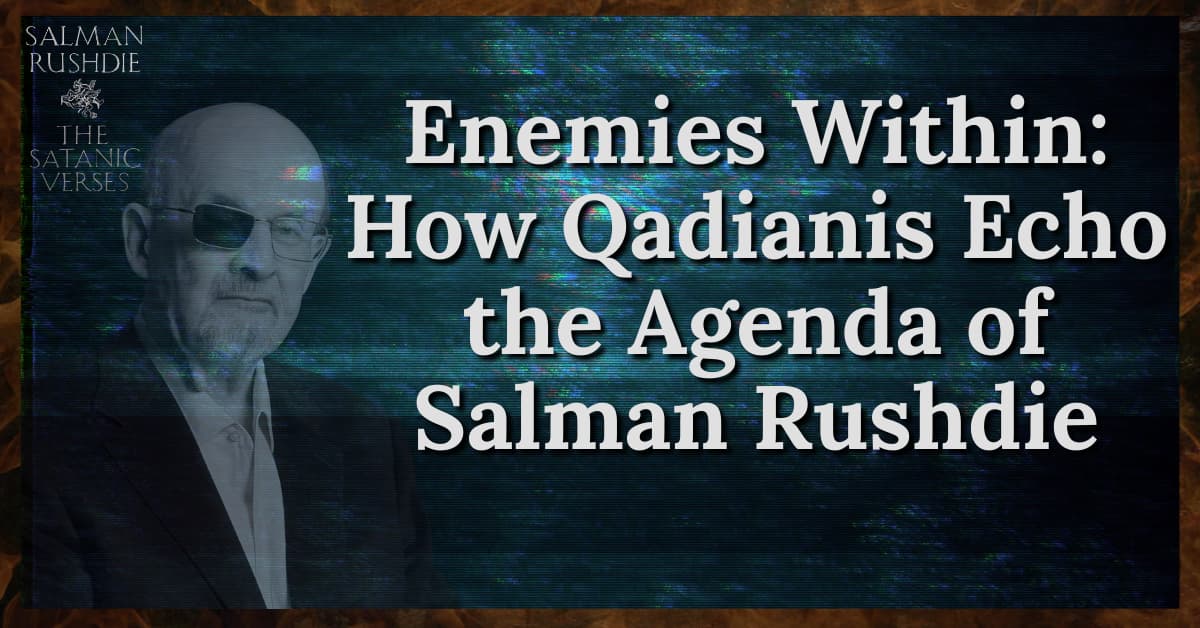Understanding the Qadiani Movement
Origins and Beliefs
The Qadiani movement, also known as the Ahmadiyya community, was founded in the late 19th century by Mirza Qadiani in Qadian, India. Mirza Ghulam Ahmad Qadiani claimed to be the promised Messiah and Mahdi, positions traditionally reserved for future figures in Islamic eschatology. More controversially, he professed to be a prophet, challenging the fundamental Islamic belief in the finality of Prophethood with Muhammad (PBUH) as the last prophet.
This claim has been the primary point of contention between mainstream Muslims and the Qadiani community. By asserting a new prophethood, the movement directly contradicts the Quranic verse:
“Muhammad is not the father of any of your men, but he is the Messenger of Allah and the last of the prophets.” (Quran 33:40)
Global Presence and Influence
Over the years, the Qadiani movement has expanded its reach beyond the Indian subcontinent, establishing a significant presence in countries like the UK, Canada, and Germany. They have leveraged modern tools, including satellite television and the internet, to propagate their beliefs. Their global outreach is often accompanied by narratives emphasizing peace and interfaith harmony, which, while commendable in principle, are viewed by many Muslims as a facade to mask their doctrinal deviations.
Salman Rushdie and “The Satanic Verses”
The Controversy and Backlash
In 1988, Salman Rushdie, a British-Indian author, published “The Satanic Verses,” a novel that many Muslims worldwide perceived as blasphemous. The book contained portrayals that were seen as mocking Islamic beliefs and the Prophet Muhammad (PBUH). The backlash was swift and intense, leading to widespread protests, book bans in several countries, and a fatwa issued by Iran’s Supreme Leader, Ayatollah Khomeini, calling for Rushdie’s death.
Global Repercussions
The controversy surrounding “The Satanic Verses” highlighted the deep abyss between Western notions of freedom of expression and Islamic sensitivities. While many in the West defended Rushdie’s right to free speech, Muslims viewed the novel as a deliberate attack on their faith. The incident sparked debates on the limits of artistic expression and the responsibilities that come with it.
Parallels between Qadianism and Rushdie’s Ideology
Challenges to Islamic Tenets
Both the Qadiani movement and Salman Rushdie have, in their respective domains, posed challenges to foundational Islamic beliefs. The former, through doctrinal claims that undermine the finality of Prophethood, and the latter, through literary works perceived as derogatory towards Islamic figures and teachings.
Western Endorsement and Support
A notable similarity is the support and platforms they have received in Western countries. The Qadiani community has found refuge and recognition in several Western nations, often being portrayed as a victimized minority. Similarly, Rushdie was lauded in literary circles, receiving awards and accolades, even as his work offended millions of Muslims.
Legal Stance on Qadianism in Pakistan
1974 Constitutional Amendment
In response to growing concerns about the Qadiani movement’s claims, Pakistan’s National Assembly passed the Second Amendment to the Constitution in 1974. This amendment explicitly declared Ahmadis as non-Muslims, thereby excluding them from the Muslim community in the legal and constitutional sense.
Legal Status of Qadianism in Pakistan
The legal actions against Qadianism in Pakistan were implemented to protect Islamic beliefs and maintain national unity. In 1974, Pakistan’s National Assembly made a historic decision by constitutionally declaring Qadianis (Ahmadis) as non-Muslims. This decision was based on the unanimous consensus of religious scholars and the overwhelming public sentiment, which considered Qadianism fundamentally opposed to the core tenets of Islam, especially the belief in the Finality of Prophethood (Khatm-e-Nubuwwat).
According to Article 260(3) of the Constitution of Pakistan, individuals belonging to the Qadiani and Lahori groups who regard Mirza Ghulam Ahmad as a prophet or a reformer are to be officially considered non-Muslims. Furthermore, under Sections 298-B and 298-C of the Pakistan Penal Code, Qadianis are prohibited from using Islamic terms and expressions, giving the Islamic call to prayer (Adhan), or referring to their places of worship as “mosques.” These laws were designed to preserve religious integrity, maintain public order, and protect religious sentiments.
These legislative measures were seen as necessary because the Qadiani movement was actively distorting Islamic teachings and misleading the public. Had these actions not been taken, the country could have faced rising sectarianism and religious unrest.
While some international circles criticize these laws as a violation of religious freedom, in Pakistan, they are viewed as a defensive and essential measure to safeguard the ideological foundation of the state, preserve the Islamic identity, and uphold national harmony.
Social Media and Public Awareness
We live in the age of social media, and the Qadiani movement has effectively leveraged this platform to spread its message. However, the encouraging development is that Muslim youth are also actively engaging in this digital arena. Through YouTube channels, Facebook pages, Instagram accounts, and Twitter, Islamic scholars and everyday users are presenting strong, well-reasoned arguments against Qadianism.
The public must not remain passive listeners. Instead, they should rise and raise their voices against this ideological threat. Even a single accurate and impactful social media post can reach thousands. This is not a time for silence; it is a time for awareness and action.
Combatting the Qadiani movement and treacherous ideologies like Salman Rushdie’s requires more than words; it demands firm belief, unity, and proactive measures. To counter these challenges, we must educate our younger generations about authentic Islamic beliefs, promote religious awareness, and take a stand at every level.
Conclusion
The challenges posed by the Qadiani movement and figures like Salman Rushdie underscore the importance of vigilance and unity within the Muslim Ummah. It is imperative to uphold and protect the core tenets of Islam while engaging constructively with differing viewpoints. Muslims can navigate these challenges through education, awareness, and adherence to authentic Islamic teachings and strengthen their communal bonds.



